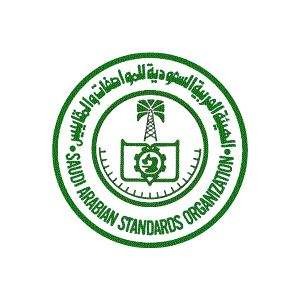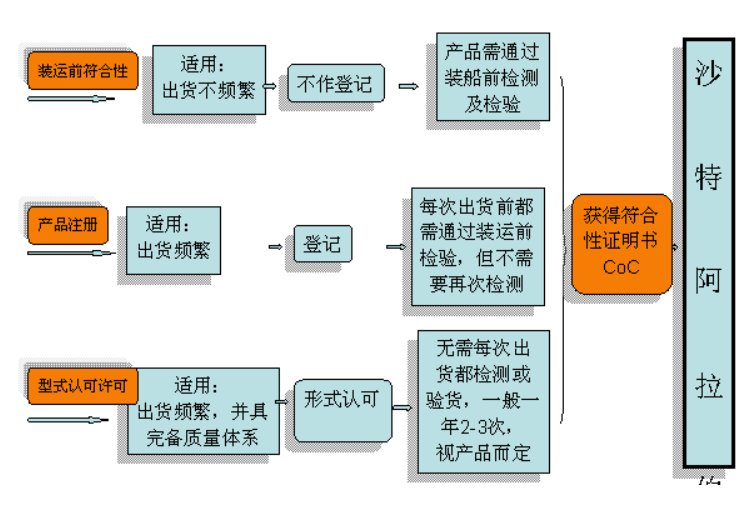Introduction of SASO certification in Saudi Arabia
Saudi Arabia implements the PCP (product conformity program) for all imported consumer products, the predecessor of which was the international conformity certification program (ICCP), which was first implemented in September 1995. Since 2008, the "laboratory and quality control department" under the Saudi Bureau of standards (SASO) has been responsible for the program, and its name has been changed from ICCP to PCP. This is a comprehensive plan for testing, pre shipment verification and certification of specified products, so as to ensure that imported goods can fully meet Saudi product standards before shipment.

PCP requires that each batch of goods arriving at Saudi Arabia port must be attached with a unified certificate of conformity (COC). Goods transported to Saudi Arabia port without certificate will be refused entry. Customers can choose three different ways to obtain COC according to the frequency of product export.
Approach 1: compliance verification
Before each shipment, the exporter or supplier shall apply for on-site inspection and test before shipment to determine that the products meet the necessary safety, environmental or other criteria specified in Saudi technical regulations.
The COC certificate can be obtained after the results are qualified. This method is suitable for the situation of low export frequency. If the export frequency is less than three times a year, it is recommended.
Route 2: registration and on-site verification before shipment
The exporter or supplier provides the delivery samples for testing. After passing the test, the products of this model (or series model) can obtain the registration certificate, and the registration period is one year. Within this period, the registered products only need to be checked on site before each shipment and shipment, and the COC certificate can be obtained after the verification results are qualified. When the registered product is changed, it is required to re register the changed model or specification. The advantage of this mode is that although the on-site verification before each shipment is necessary, there is no need to conduct pre shipment test for each batch of goods.

Route 3: quality mark
This procedure is basically in accordance with the general requirements of ISO / IEC guideline 28 - typical third party product certification system. Type test and initial factory inspection are carried out on the applied products. QM certification certificate can be obtained after passing the test. The validity of the certificate is maintained through the supervision and inspection in the following years. Under normal circumstances, the products with QM certificate do not need to be tested and checked on site before delivery. Instead, the consistency between the delivered products and the certified products is ensured by means of data review, and COC certificate can be obtained after the data review is qualified.
This method can not only save the time and cost before each shipment, simplify the repeated application procedures, but also ensure the delivery time. Therefore, it is favored by large companies with frequent shipment or large scale, paying attention to quality and reputation. The exporter or manufacturer's products are tested to be in full compliance with the mandatory standards of the importing country, and are subject to the factory quality system audit before obtaining the type approval license.
What is the cost of SASO certification in Saudi Arabia
SASO certification fee is divided into two. Inspection fee and test service fee:
1、 Inspection fee and certificate fee are calculated according to your FOB value!
2、 Evaluated according to your specific product:
1. IEC test report for live products
2. Non electrified products can be ISO + internal test reports or quality inspection reports issued by third-party laboratories

